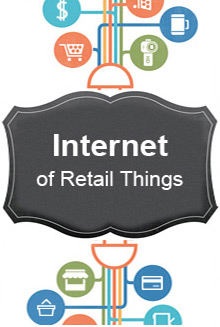The Internet of Things is evolving rapidly. From connected machines to living in the data-driven world and preparing for challenges, IoT is changing the conventional way of doing business. Here are some reasons to why IoT has become a large opportunity:
1. Low Cost Devices/Sensors & High Battery Life: Most of the IoT systems are dependent on sensors or interconnected devices to transmit the data in almost real time. The availability of such sensors and a connected gateway has created the possibility to generate more device data than any time in the past.
2. M2M & Beyond: M2M was commenced with the intention of devices talking to each other and taking decisions. The whole aspect of mobility and consumerization created a need for combining this Machine Data, with Information Technology and Personal/Social Data. Now, IoT is about giving a context to the data and using that to create an actionable insight that can take real-time business decisions. According to the business consultancy firm Gartner, 26 billion objects will be linked together in the Internet of Things by 2020.
3. The B2B Ecosystem Play: IoT in a vertical context always existed in the Web Era. However, the increased potential of IoT in cross-domain or B2B applications have generated a new value for the existing businesses and also opened up new opportunities. According to Gartner, the industries that are expected to profit the most from the Internet of Things include manufacturing, healthcare, and insurance.
4. The Power of Multiple Data Sources: When you have data only from your devices, the value and usage of it is less. The power actually multiples when the number of data sources are more. This high level of correlation would possibly provide much more relevant and meaningful insights.
5. Mobile Penetration: With Smartphones and Mobile internet growing exponentially, the need to provide data at the hands of the customers has become a norm. We no longer have to login to a big remote or data center systems. Updates and information are available directly.
6. Growth in Applications: With a centralized cloud-based IoT platform and a majority of data sources coming from different devices and people, the Applications possibility in a Smart city context or in any B2B environment has opened up widely. As per Mckinsey, the IoT Application itself will possibly have $11.1 Trillion potential per annum by the year 2025.
7. API Economy – Gone are the days where there was one verticalized solution. With the advent of cloud and multiple data sources, the platforms have become open APIs. Not only can they consume APIs from various other sources, but also potentially share and expose it; thus, making more ROI beyond their own product and services.
8. Increased Digitization: Increased digitization is blurring the lines between technology, companies and business. Many businesses now want to take a technology approach to bring their offering and services closer to the customer.
9. Uberization: New emerging companies are using technology to provide business services without actually, or in fact, carrying ZERO assets on their Books. This is revolutionizing the way businesses were done before.
10. Lower cost & Investment to New Business: In the App World, more businesses are going the technology way by becoming more Application centric for their customers. The initial investment for entering a new business and monetization is becoming almost negligible and new start-ups are not shying away to experiment with innovative concept/ideas.
Though IoT is the future, we can actually see it evolving on the ground. The major issues of connectivity, security and privacy remains a concern and will be addressed more systematically with better interoperability and security standards that would be coming both from Industry and Government Regulations. We are in the era of a major disruption in technology and business, and IoT is an enabler for making this possible.

Sandeep is a former Happiest Mind and this content was created and published during his tenure.






